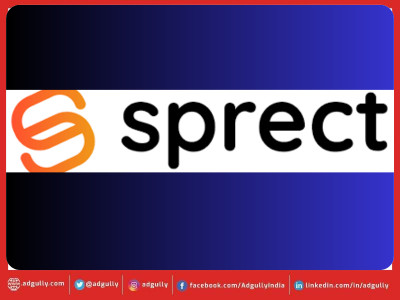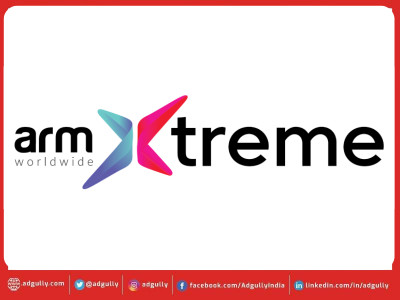Decoding Martech: Navigating ROI maze in the digital era
In today's digital marketing landscape, a constant barrage of cutting-edge tools and tactics vie for our attention. Promises of personalization, data-driven insights, and skyrocketing ROI fill every corner of the web. But for busy marketers, navigating this hype-filled terrain can be daunting. How do you separate genuine breakthroughs from fleeting trends? More importantly, how do you identify the marketing technologies (martech) that will truly transform your bottom line? Let us dive deep, helping businesses cut through the clutter and unlock the real power of data-driven marketing for the future.
We have industry experts who will dwell on strategies to sift through the ever-expanding martech toolbox and pinpoint the tools that will deliver measurable results, personalization power, and a return on investment you can celebrate.
Picking the right tool
So how can businesses move past the overwhelming amount of marketing technology options and identify the martech tools that will truly deliver a measurable ROI?
For selecting the right marketing technology tools, businesses should first define their marketing goals and list out key marketing challenges, says Gandharv Sachdeva, Country Head - India, Hybrid. According to him, investing in tools that meet these specific needs ensures desired results, such as better customer engagement or more efficient data analysis. “It is critical to opt for tools that work well with existing business technologies to create a cohesive system. Furthermore, the idea is to select tools that have good analytics capabilities, which makes it possible to track performance and measure ROI continuously, helping businesses stay competitive in the long run,” he adds.
With so many tools available these days, picking the right ones can be a daunting task, especially in the field of marketing technology (Martech), opines Manas Gulati, Co-Founder and CEO, ARM Worldwide.
According to him, in order to ensure that businesses invest wisely and achieve measurable returns, it's essential to approach martech selection strategically. “Firstly, businesses need to have a clear understanding of their marketing objectives and how they align with broader organisational goals. Having the right set of data and segregation for how much of it will be dealt with individually or in an integrated manner can help ensure that the chosen martech solutions contribute meaningfully to overall business success. Additionally, customisation also plays a significant role. Tailoring solutions to specific business needs and requirements ensures optimal functionality and alignment with unique objectives. Next, prioritising tools with robust ROI measurement capabilities is crucial. Being able to track and analyse metrics such as revenue impact, customer conversions, and campaign performance allows businesses to gauge the effectiveness of their martech investments accurately. Benchmark analysis within the industry provides valuable insights into typical performance metrics and expectations. Understanding standards helps set realistic ROI goals and evaluate martech investments effectively,” he adds.
Further, Gulati adds, leveraging specialised ROI tracking tools enhances the ability to measure and evaluate marketing initiatives' impact. “Platforms like Ruler Analytics, Cyfe, and Google Analytics offer sophisticated analytics capabilities, empowering businesses to make data-driven decisions and optimise their martech strategies effectively. The consistent collaboration between marketing and tech teams can streamline tools and technology adoption and implementation. By ensuring open communication and cross-departmental cooperation, businesses can leverage technical expertise to maximise the effectiveness of solutions while aligning them with marketing goals. And lastly, fostering a culture of continuous optimisation is the key. Regularly reviewing performance metrics and adjusting martech strategies ensures ongoing alignment with ROI objectives and maximises the value derived from marketing technology investments,” he adds.
Vishal Rupani, Co-founder, Sprect.com, opines that the ever-expanding martech landscape can be daunting, but with the right approach, businesses can identify the tools that truly deliver.
“The key lies in understanding your customer journey. By mapping out key touchpoints, businesses can select martech solutions that address specific goals at each stage. For example, a company aiming to personalize the customer journey can benefit greatly from a Customer Data Platform (CDP). A CDP consolidates customer data from various sources like website behaviour, email interactions, and purchase history, creating a unified customer profile. This allows businesses to segment their audience based on individual preferences and tailor marketing messages accordingly. By measuring the uplift in engagement or conversion rates after personalizing marketing efforts using a CDP, businesses can demonstrate a clear return on investment. This data-driven approach ensures they choose martech tools that directly address their needs and deliver measurable results, maximizing marketing effectiveness,” says Rupani.
As always the brands have to focus on what they want to do and choose the stack accordingly, opines Naresh Gupta, co-founder and managing partner, Bang in the Middle. “For a small business the cost of tech stack is a big consideration; the platforms have their tools too, but then they also need a certain investment for them to give access to tools. Brands need to define objectives and then figure out a way to track,” he adds.
Martech and SMBs
Can martech help even small and medium-sized businesses achieve the level of customer personalisation that larger companies are known for? If so, what martech tools and strategies are most effective for SMBs?
According to Manas Gulati, martech holds significant promise for small and medium-sized businesses (SMBs), offering them the opportunity to achieve levels of customer personalisation traditionally associated with larger enterprises. He adds that by leveraging martech tools and strategies effectively, SMBs can elevate customer experiences and drive engagement. Here's a closer look at some key martech tools and strategies particularly suited for SMBs:
- Customer Relationship Management (CRM) Systems: CRM platforms like Salesforce, HubSpot, and Zoho CRM empower SMBs to efficiently manage customer data, interactions, and relationships. These systems facilitate personalised customer communications, enable tracking of customer preferences, and support tailored experiences, all crucial elements for enhancing customer engagement.
- Email Marketing Automation: Solutions such as Mailchimp, and Brevo offer automation functionalities with different budget options which can be tailored to SMB needs. These tools enable SMBs to send personalised and targeted emails based on customer behaviour, preferences, and past interactions, enhancing the effectiveness of their email marketing efforts.
- Content Personalisation Platforms: Content marketing tools like WordPress, Trello, Google Analytics, and Adobe Experience Manager with the capability to personalise content according to customer segments, interests, and engagement history. This personalised approach ensures that SMBs deliver relevant content to their audience, thereby boosting engagement and conversion rates.
- Social Media Management Tools: Platforms including Hootsuite, Buffer, and Sprout Social or social listening tools like Brandwatch, and Hootsuite Insights can help streamline social media management and facilitate personalised interactions with customers across various social media channels, enabling SMBs to nurture relationships and foster brand loyalty through tailored engagement strategies.
- Data Analytics and Insights: Leveraging analytics tools like Google Analytics, Adobe Analytics, and Mixpanel, SMBs gain valuable insights into customer behaviour, preferences, and engagement metrics. Armed with this data, SMBs can refine their marketing strategies to better meet customer needs and preferences, ultimately driving more effective customer engagement and retention
- Machine-Managed Platforms: Google Ads, Facebook Ads Manager, and LinkedIn Advertising automate ad campaign management, optimising targeting, budget allocation, and performance tracking for efficient and effective advertising campaigns.
- Survey and feedback: Tools like SurveyMonkey, Typeform, and Qualtrics gather opinions, preferences, and feedback from users to inform decision-making and improve customer experiences.
By integrating these martech tools and strategies into their operations, SMBs can unlock the potential for enhanced customer personalization, increased engagement, and improved competitiveness against larger enterprises in delivering personalised experiences to their customer base.
Gandharv Sachdeva reckons that Small and medium businesses (SMBs) can also benefit from martech tools and technologies. The idea, according to him, is to identify the tools that match the specific business needs and budget. “Tools such as customer relationship management software (CRM), email marketing software, and analytics are essential. These help businesses extract raw data, understand their customers' behavior and preferences, send the right/customized communications, and measure the results. The strategy should be to automate and make the processes more efficient, leading to higher customer loyalty and satisfaction,” adds Sachdeva.
For a SMB, the strategy has to be growth and a wider targeting and not drive deeper into existing audience base, says Naresh Gupta. “Personalisation has many levels, and not all brands need to be as personalised as other brands. The large brands have their own tools that they own and they are able to personalise because of a very large audience pool. When your audience pool is small, you need to expand the base. Then you need tools that help you expand your target and not so much track the target.”
Handling customer data
Businesses can harness the power of Martech to effectively handle the influx of customer data they accumulate. Martech offers a suite of tools and platforms designed to streamline data management and analysis processes, enabling companies to gain actionable insights and make informed decisions. By leveraging Martech, businesses can better understand their customers' behaviors, preferences, and needs, leading to more personalized and targeted marketing efforts. Having said that, using martech for data management and analysis comes with its own challenges and opportunities.
There is obsession today with data, and for brands it’s critical to not get trapped in data whirlpool, states Naresh Gupta. He suggests that brands need to know how to use the data for growth. “The use of data will never be exact science; there is a lot of flex that brands need to have. I feel the challenge is beyond tools. It’s more about business need and how the data is leveraged to create brand pull. While the tools will help you in learning from what was done, but past results cannot be the only way to build future,” Gupta concludes.
In the evolving digital landscape, businesses have an advantage in leveraging customer data more effectively by using tools beyond traditional CRM and analytics, says Gandharv Sachdeva.
According to him, new-age platforms such as Customer Data Platforms (CDPs) can collect data from various sources into a single repository for deeper analysis. “The main challenge lies in integrating the data securely and in compliance with regulatory and privacy requirements. As we progress further, the opportunity lies with predictive analysis and artificial intelligence and their capabilities to elevate customer engagement by anticipating their needs and perceptions. Such tactics will help businesses convert challenges into opportunities and build meaningful relationships with customers,” says Sachdeva.
Any kind of tools and technology only assist businesses to make their work easier, and Martech is no exception, says Manas Gulati. “It provides a strategic advantage for businesses grappling with the vast amount of customer data they accumulate. Leveraging platforms like HubSpot, businesses can excel in data integration and customer profiling, which enables streamlined data management processes effectively. Through centralised data management, detailed customer profiles are created, facilitating personalised experiences and targeted messaging tailored to specific audience segments. Furthermore, advanced analytics tools embedded within martech platforms delve into real-time behavioural insights, offering valuable inputs to inform digital marketing strategies and optimise campaign performance. The ability to precisely segment audiences facilitates the creation of tailored marketing campaigns, driving increased engagement and return on investment (ROI).”
However, adds Gulati, despite the utility, challenges also persist. Concerns regarding data quality and compliance with privacy regulations, such as GDPR and CCPA, underscore the importance of maintaining accuracy and integrity in data handling practices. Additionally, seamless integration of martech tools into existing systems poses technical complexities, requiring meticulous planning and skilled expertise.
“The efficacy of most tools tends to improve with larger datasets. However, cases, which typically have limited data sets, may face constraints when it comes to processing capabilities. This limitation can potentially impede their ability to generate impactful responses or attain substantial ROI. Moreover, in some cases, small businesses may be hesitant to share data with various platforms due to privacy concerns or other reasons. Despite these challenges, businesses recognise the collaborative effort required to overcome obstacles and ensure successful martech integration. By aligning technological advancements with ethical considerations, businesses aim to maintain customer trust while leveraging martech to drive growth and remain competitive in today's dynamic marketplace,” says Gulati.
Ultimately, says Gulati, the opportunities presented by Martech are vast. “Efficient access to vast datasets, advanced analytics capabilities for informed decision-making, and real-time responsiveness to market dynamics offer significant advantages. Enhanced targeting and segmentation capabilities enable personalised content delivery, while automation streamlines workflows and scales marketing efforts effectively. New-age integration of AI tools also strengthens this potential offering manifold avenues with which marketing technologies can be embedded in existing business structures. The integration of data across touchpoints provides holistic insights into the customer journey, empowering businesses to adapt and thrive in the digital space,” he says.
The right strategies
In an age of automation, businesses need to ensure that Martech enhances rather than replaces the human element of marketing with the right strategies to ensure effective collaboration between marketing teams and martech tools.
In today’s tech-first world, businesses have the opportunity to adopt a “people-first approach” by ensuring that marketing technologies add value and support human marketing efforts and creativity, rather than overshadow them, says Gandharv Sachdeva. According to him, a good strategy can be to introduce tools that facilitate rather than dictate marketing processes, allowing teams to use technology as a means to an end rather than the end itself.
- Social listening tools help marketers find out how customers feel and then effectively engage with them with a human touch in real-time.
- Interactive technologies, such as chatbots and AI-driven recommendation engines, offer human-like interactions while still under human oversight.
- The use of tools that analyze customer data for trends and behaviors provides insights and the application of these insights in marketing campaigns is led by humans. This ensures that marketing messages remain authentic, relatable, and engaging.
According to Manas Gulati, in an age dominated by automation, businesses must ensure that Martech serves to enhance rather than replace the human element of marketing. Although it is evident that Martech tools are invaluable assets, complementing their capabilities with human intelligence rather than relying on them completely is the most optimal way to proceed with its integration, he adds.
With the automation capabilities, and streamlining of critical operations such as data management, analytics, and automation, MarTech empowers teams to allocate their time and resources more strategically. The automation of repetitive tasks and the provision of actionable insights derived from data analysis allow marketers to focus on high-impact activities such as devising strategic initiatives, enhancing creativity, and cultivating meaningful relationships with customers. In essence, MarTech functions as a force multiplier, augmenting the efficiency and effectiveness of marketing efforts.
According to Gulati, it is important to underscore the importance of striking a delicate balance between technological innovation and human expertise in achieving marketing objectives. To ensure this collaboration, several strategies can be employed:
- Training and Education: Provide comprehensive training programs to ensure marketing teams are proficient in utilising Martech tools effectively. Continuous education ensures teams are up-to-date with the latest features and functionalities.
- Cross-Functional Collaboration: Foster collaboration between marketing and tech teams to ensure seamless integration and alignment of martech tools with organisational objectives. Encourage open communication and shared goals to drive successful implementation.
- Empowerment and Ownership: Empower marketing teams to take ownership of martech solutions by involving them in the selection process and encouraging experimentation. This sense of ownership fosters engagement and accountability.
- Data-Driven Decision-Making: Cultivate a culture of data-driven decision-making within the marketing team, leveraging martech tools to derive actionable insights from customer data. Encourage experimentation and optimization based on data-driven insights.
- Feedback Mechanisms: Establish feedback mechanisms to solicit input from marketing teams regarding the usability and effectiveness of Martech tools. Regular feedback sessions facilitate continuous improvement and refinement of martech strategies.
“By implementing these strategies, businesses can ensure that martech enhances the human element of marketing, empowering teams to achieve their goals effectively while leveraging the capabilities of automation and technology,” concludes Gulati.






















Share
Facebook
YouTube
Tweet
Twitter
LinkedIn